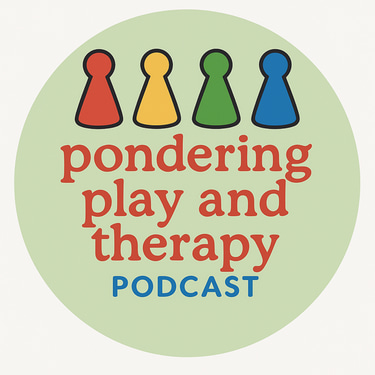The Interplay Between Play and Poverty: A Dialogue on Resilience and Connection
In our latest episode of *Pondering Play and Therapy*, Julie and Philippa explore the complex relationship between play and poverty, highlighting how financial hardship impacts children's ability to engage in playful activities. Their conversation delves into the broader societal implications and opportunities for resilience and connection through play.
Philippa and Julie
6/7/20252 min read


Understanding Poverty's Impact on Play
Julie begins by emphasising how poverty can severely limit children's access to play, impacting their physical, cognitive, social, and emotional development. The hosts reference the United Nations Convention on the Rights of the Child, particularly Article 31, which underscores children’s right to rest, leisure, and play. This right, however, is often unattainable for those living in impoverished conditions.
In the UK, poverty is defined as living in a household with an income below 60% of the national average. This definition, Julie notes, is more complex than just a lack of employment opportunities. Many families working multiple jobs still find themselves entrenched in poverty, affecting their children’s play opportunities.
The Daily Reality of Poverty
Philippa shares a startling statistic: approximately 31% of children in the UK live in poverty, which equates to about 4.5 million children. This reality influences everyday scenarios—nine out of 30 children in a typical classroom might be living in poverty. The struggle is often hidden, as many families work hard to mask their financial difficulties.
Julie reflects on her experiences with families living in poverty, highlighting how these circumstances can affect children’s ability to play and learn. The psychological burden on children who witness their parents' struggles impacts their social and emotional well-being.
Barriers to Play and Social Interaction
Philippa illustrates how poverty creates barriers, not just in access to physical play spaces but also in social opportunities. Children in low-income families may miss out on extracurricular activities because of their inability to afford memberships or equipment. These limitations can stifle their potential and future opportunities.
The conversation shifts to the hidden emotional costs, where children grow up aware of their family’s financial struggles, impacting their self-esteem and social interactions. Julie shares poignant anecdotes from her therapeutic work, where the stark contrast between a child’s living situation and the well-resourced playroom can highlight deep-seated frustrations and feelings of inadequacy.
The Resilience of Play
Despite these challenges, the potential for play persists, even in dire circumstances. Philippa recounts her experiences with homeless youth who found ways to connect and foster a sense of community through simple games and shared moments of play. This resilience underlines the importance of maintaining a playful spirit even amid difficult times.
Julie and Philippa conclude by discussing the potential for integrating more playfulness into environments traditionally seen as bleak, like waiting rooms or public service offices. Simple acts of connection, such as a smile or a game of peek-a-boo, can be transformative.
A Vision for a More Playful World
Philippa wraps up the discussion by stressing that while poverty undeniably impacts every facet of life, there remains the capacity for connection and play. This connection can offer hope and foster a sense of community and resilience. The episode ends with a call for a world where everyone, regardless of economic status, has the opportunity to experience the softness of play and the profound connections it can build.
In offering these insights, Pondering Play and Therapy reminds us that while poverty presents significant challenges, the human spirit’s capacity for play and connection persists, offering hope for a kinder, more connected world.
Thank you for engaging with this discussion on Pondering Play and Therapy. We invite you to subscribe, like, or share your thoughts, helping us to continue exploring these vital topics.
